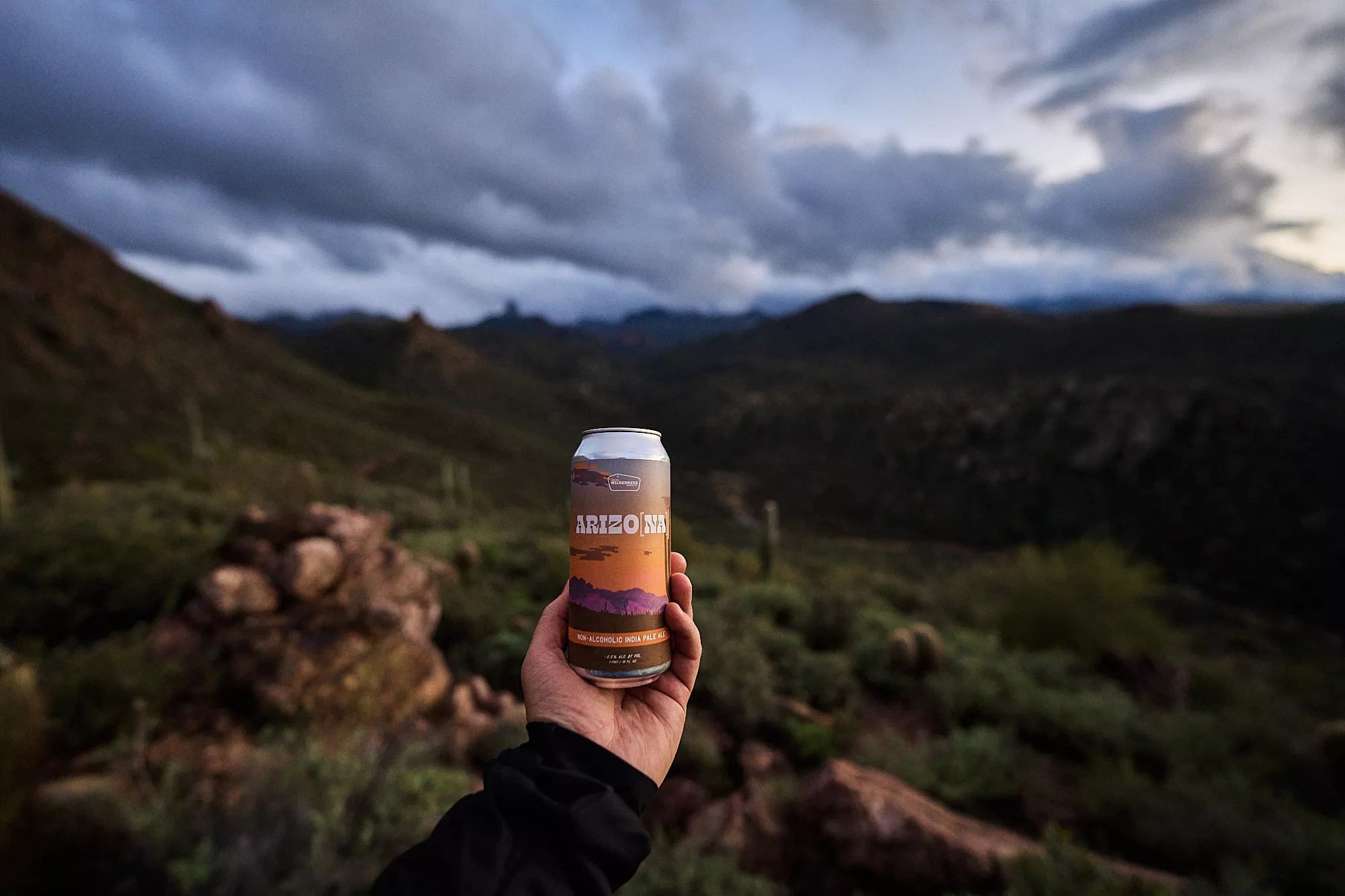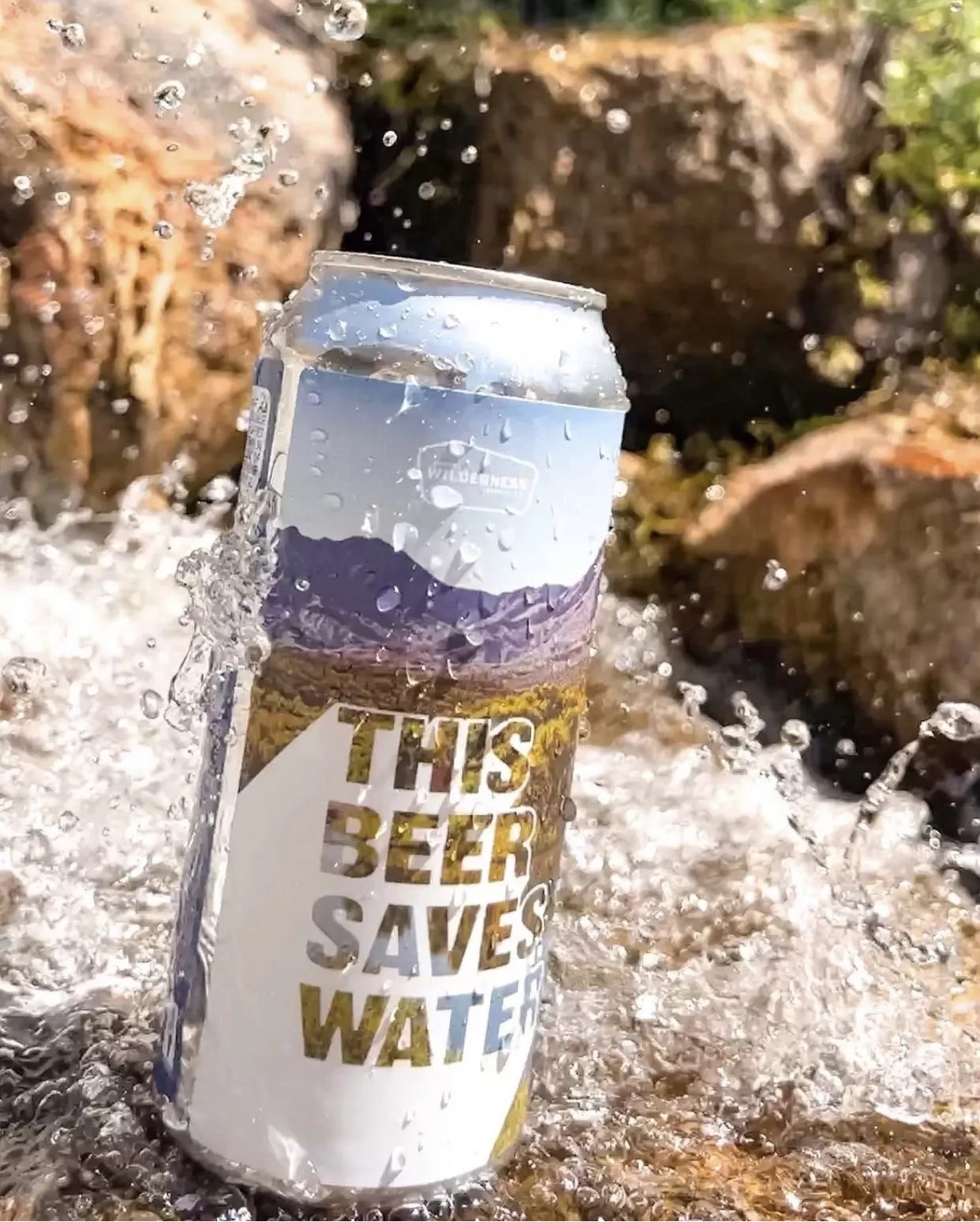
Arizona Wilderness Brewing Co.

Audio By Carbonatix
On April 22, 1970, millions of Americans participated in a novel concept called Earth Day, then known as the “National Teach-In on the Crisis of the Environment.” After a string of ecological disasters in the ’60s that went seemingly unnoticed by government officials, the American people sent a clear message that environmental issues were everyone’s issue.
Now, 53 years after the first Earth Day, the message is still vital, perhaps no more so than in Arizona. With rising temperatures and the looming threat of water insecurity, local government and businesses alike are feeling the pressure to make serious changes.
“It’s never been more time sensitive to transition to a more sustainable food system,” says Keyera Williams, public information officer for the City of Phoenix. “Achieving creative breakthroughs in how food is produced, distributed, processed, sold, and recycled is critically important.”
Jason Lowry, director of sustainability services with Local First Arizona is currently working with over 40 restaurants across the state to help them become certified sustainable businesses. He notes that while there are many ways a restaurant can reduce its carbon footprint, utilizing local suppliers is at the top of the list – the Environmental Protection Agency estimates that an organization’s supply chain can account for more than 90 percent of its greenhouse gas emissions.
“By sourcing food from Arizona growers, [restaurants] are eliminating a massive chunk of greenhouse gas emissions while preserving farmland and our ability to feed ourselves,” Lowry says.
To help promote restaurants using homegrown ingredients, the City of Phoenix’s Office of Environmental Programs launched its “Phoenix: Let’s Eat Local!” campaign. As part of the city’s broader 2025 Food Action Plan, the program aims to help residents learn about neighborhood food communities and includes a directory of locally owned restaurants.
Many restaurants and businesses are making an impact with their environmental efforts, but these three Valley spots are leading the way.
Arizona Wilderness Brewing Co.
Multiple LocationsThere wasn’t one lightbulb moment for Arizona Wilderness Brewing Co. co-owner Jonathan Buford regarding his views on sustainability, but rather a lifetime of learning that started with some blueberries.

This Beer Saves Water, like all of Arizona Wilderness’ brews, is made with Sinagua Malt barley.
Arizona Wilderness
“I have fond memories of my mom taking me to blueberry farms [in Ohio] and seeing plentiful things to eat come out of healthy soil,” Buford says. “I realized how integral Mother Nature is to farming.”
At Arizona Wilderness, Buford tries to protect and conserve Arizona’s natural resources in every part of his business. In 2020, he and his team launched the Drink Like You Care initiative, complete with a new beer aptly named This Beer Saves Water. It does so by only using barley from Camp Verde-based company Sinagua Malt, which conserves 50 gallons of water per pint of beer produced.
“People are supporting Arizona’s future whether they know it or not… which is kind of cool,” Buford says.
On the food side, Arizona Wilderness partners with local vendors wherever possible and works with Recycled City to compost food scraps.
While Buford acknowledges guests may not necessarily visit Arizona Wilderness because of their practices, he says he tries to make business decisions that put people and the planet over profit.
“I’m not going to be here more than 90 years. Why would I care about carrying money to my grave when I know there are rivers being overused?”
Persepshen
4700 North Central Avenue
Nose-to-tail butchering. Hyper-local ingredients. Eco-friendly cleaning supplies. For Jason Dwight, Persepshen’s executive chef and co-owner, there is no such thing as being too sustainable.

Part of the fun with dining at Persepshen is the ever-changing menu, but some variation of their famed charcuterie board is typically available.
Persepshen
It’s a way of life for Dwight, who grew up watching his grandparents utilize everything out of necessity. When he and his wife (Persepshen co-owner and executive pastry chef Katherine Dwight) discussed opening a restaurant, they envisioned an environment that emulated their home life: growing fruits and vegetables, ensuring nothing goes to waste, and not using harsh chemicals for cleaning.
“We’re going to employ the same ethos as we do (with) our lifestyle,” Dwight says.
In an industry notorious for razor-thin profit margins, spending more for better products is often a hard sell, Dwight says, but for his business, it was non-negotiable.
“Just to save a few hundred dollars a week by not doing so wasn’t even an option for us,” he says.
The Dwights work with a host of Arizona-based farms and ranches to supply everything for the restaurant and if they can’t get something locally, they do without it. When at the mercy of local supply chains, an evolving menu is par for the course. Persepshen’s menu changes each Friday based on the produce and cuts of meat currently available.
“As a chef, it’s exciting,” Dwight says. “I love being able to create new things and new flavors.”
Dwight doesn’t consider Persepshen to be a pioneer of the local-first movement, explaining that “people lived this way before we were alive,” but his restaurant has been a positive influence throughout the Valley’s local dining scene. By introducing fellow chefs to high-quality items available in the state, Dwight has seen a gradual shift in demand for local suppliers.
“It feels good,” he says. “That’s one less establishment contributing to the commodity cycle.”
Sin Muerte
817 North First Street
With the growing discourse around the environmental impacts of raising animals on a mass-production scale, Micheal Babcock, co-founder of Instrumental Hospitality Group, knew something needed to change. Instrumental Hospitality’s first concept, Belly, features many vegetarian options on its menu. The group’s newest concept, Sin Muerte, takes things a step further and is entirely vegetarian.

At Sin Muerte, diners can enjoy novel takes on classic meat and seafood dishes, like this enoki mushroom calamari.
Cassie Brucci
This wasn’t because of Babcock’s personal dietary choices – in fact, none of the owners are vegetarian or vegan – but because he “felt compelled to be part of a forward-thinking movement of chefs and restaurateurs” eschewing traditional meat and seafood-laden menus for sustainable alternatives.
The Sin Muerte menu is a mix of vegetarian items and creative plant-based takes on traditional meat dishes. As with other Instrumental Hospitality restaurants, Sin Muerte purchases most of its ingredients from local Arizona vendors.
“Our chickpeas come from Ramona Farms, and our flour comes from Hayden Flour Mills,” Babcock says. “So when you eat our classic hummus dip, you’re eating Arizona up all in one bite.”
Sin Muerte’s veggie-forward approach has helped Babcock deepen his relationship with Valley farmers and take a hands-on approach to sourcing.
“By restricting ourselves to just vegetables, we’re able to tap into so many local makers and growers of food. It’s really inspiring,” Babcock says. “It’s the most challenging restaurant of my career and the most meaningful one.”